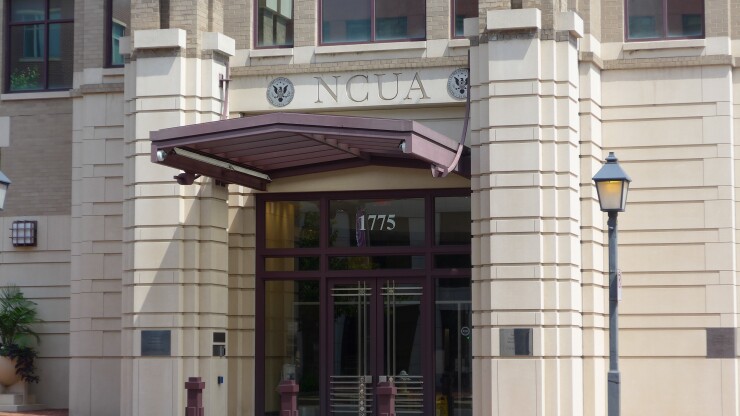
A federal appeals court judge stayed a lower court ruling Thursday that would have allowed National Credit Union Administration board members Todd Harper and Tanya Otsuka to remain at their posts, leaving the NCUA with a single regulator pending appeal.
The Thursday order overrules a
"Yesterday's decision by a D.C. Circuit appeals panel to grant the government's stay motion is disappointing as the continued lack of a quorum leaves the agency in limbo on many important decisions," Harper said in a statement. "That said, the court also set a fairly expeditious briefing schedule for considering the appeal. I look forward to the court acting as soon as possible so that Tanya Otsuka and I can return to the NCUA Board and complete important work."
The court ruled in favor of expediting the appeal, setting a compressed briefing schedule through October and pledging to hear arguments as soon as briefing concludes.
The ruling leaves the agency without the two member quorum that Harper and Otsuka say is required under the law for the agency to take actions. The current NCUA leadership
Credit Union industry groups also urged quick resolution. America's Credit Unions President and CEO Jim Nussle said following the ruling ACU hopes the remaining board vacancies will be filled.
"America's Credit Unions support the court's decision to set an expedited briefing schedule so this important question about removal authority under the Federal Credit Union Act can be resolved quickly," Nussle said in a statement. "We are closely monitoring other cases addressing this same issue and continue to advocate for a full, bipartisan, three-member NCUA board to lead the independent agency."
The litigation over the NCUA board comes amid a
The case, Harper v. Bessent, arose following President Donald Trump's April
The current structure of the board was established with the Financial Institutions Regulatory and Interest Rate Control Act of 1978. The amendment to the NCUA's founding statute eliminated language that explicitly gave the president authority to remove sitting members.
Otsuka and Harper say the firings violated Congress's original intent behind the 1978
"The tradition of maintaining the independence of financial regulators pre-dates the U.S. Constitution, goes back to the early days of our republic, and is vital for maintaining the public's trust that their financial institution of choice operates safely and soundly, their consumer rights remain fully protected, and their insured share deposits are safeguarded," Harper said Friday. "I remain hopeful that the appeals panel will ultimately issue a favorable ruling for us on the merits."
The government has maintained that, unlike the FTC board members protected under the 1935 decision, the modern NCUA exercises significant executive power through enforcement, investigation, rulemaking and penalties and therefore does not fit within what they view as the Humphrey's Executor exception to "the president's unrestricted removal power."






